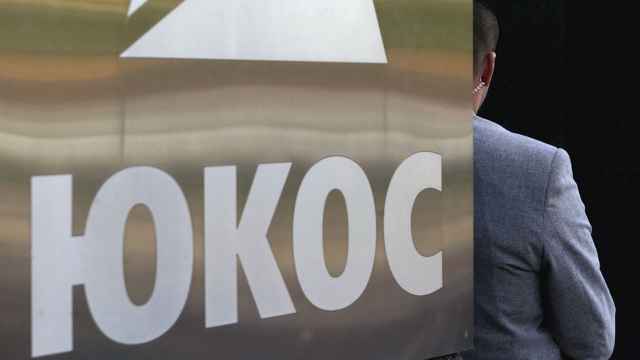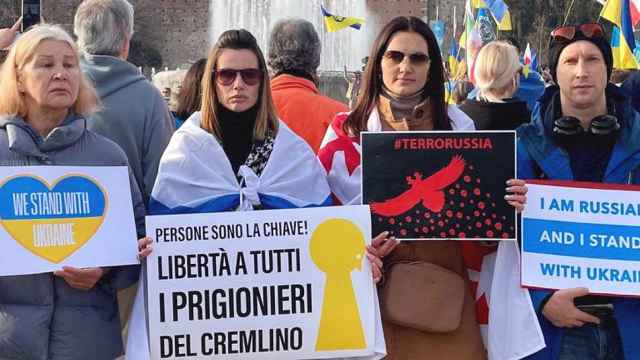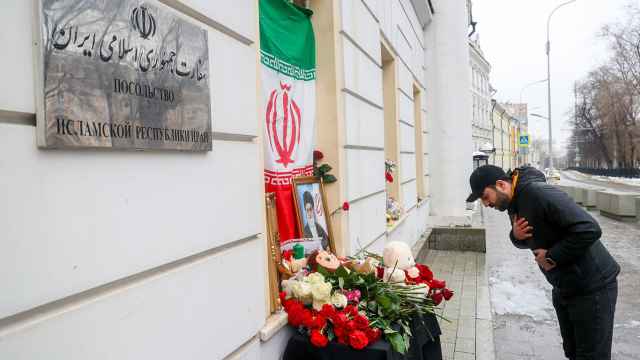Days after the death of an adopted Russian boy in the United States sparked outrage among lawmakers and senior officials, the children's ombudsman declared that a controversial ban on U.S. adoptions had not "solved the problem" and called for the dead boy's brother to be returned.
Ombudsman Pavel Astakhov said Wednesday that rampant child abuse and weak oversight of adopted Russian children in the United States meant that a tragedy like the recent death of three-year-old Maxim Kuzmin was bound to happen again.
Kuzmin, whose American name was Max Alan Shatto, died Jan. 21 at a hospital in Odessa, Texas, under murky circumstances. He was the 20th Russian orphan to die in the United States since 1996, according to Russian government statistics.
When the news broke in Russia on Monday, officials quickly accused his adoptive mother, Laura Sotto, of murder, and said the incident proved lawmakers were right to ban U.S. adoptions.
Astakhov backed off that claim Wednesday pending the results of an ongoing investigation, which will be completed in approximately two weeks, according to a statement released Tuesday by U.S. Senator Mary Landrieu.
The death has threatened to further strain U.S.-Russian relations, but President Vladimir Putin on Wednesday seemed to downplay it, urging the public to turn its attention from foreign adoptions to "much more important" issues facing the nation's estimated 125,000 orphans in state care.
Foreign adoptions affect hundreds of children, whereas there are thousands of orphans in Russia, he said during a meeting Wednesday with Olga Golodets, deputy prime minister in charge of social policy, Interfax reported.
New measures aimed at boosting domestic adoptions will cost 40 billion rubles per year ($1.3 billion), and a bill that would cut paperwork and boost financial support for adoptive parents will be introduced in the State Duma in the near future, Golodets told him.
The thing that would stimulate domestic adoptions most, however, is if Russians would become "more attentive and kind," she said.
The government will attempt to have Kuzmin's younger brother, two-year-old Kirill, returned to Russia, where he could be adopted by relatives, Astakhov said. "Whether it happens or not depends on how persistent we are," he said at a press conference Wednesday.
U.S. authorities failed to inform their Russian counterparts of Maxim's death for almost a month and still have not provided a comprehensive list of Russian children in the United States, Astakhov said. Adopted Russian orphans retain Russian citizenship until they become legal adults.
Maxim's brother Kirill, or Kristopher Elvin Shatto, as he's now known, is still in the custody of his adopted family, and the Texas Department of Family and Protective Services has determined that it is currently "not necessary" to remove him, a spokesman told The Moscow Times by telephone late Tuesday.
Adoptions lawyer Anton Zharov, however, said it was "essentially impossible" for Russia to secure Kirill's return because he's a U.S. citizen. "I doubt that [the United States] will send him across the ocean just for the sake of political expediency," Zharov said by telephone Wednesday.
Theoretically, a Russian court could nullify the adoption, but that doesn't mean he's coming home, Zharov said. "Who's going to transport him, physically? Who's going to take his hand and bring him to Russia? Who? I don't think you'll find such people," he said.
He added that it was unlikely U.S. officials would allow Kirill to be taken out of the country.
Kirill and his brother Maxim left Russia "in the final days" before a Jan. 1 ban on U.S. adoptions went into effect. Supporters said the measure was necessary to protect children from abuse, but it was widely seen as a response to a U.S. law calling for sanctions against Russian human rights abusers.
Contact the author at [email protected]
Related articles:
A Message from The Moscow Times:
Dear readers,
We are facing unprecedented challenges. Russia's Prosecutor General's Office has designated The Moscow Times as an "undesirable" organization, criminalizing our work and putting our staff at risk of prosecution. This follows our earlier unjust labeling as a "foreign agent."
These actions are direct attempts to silence independent journalism in Russia. The authorities claim our work "discredits the decisions of the Russian leadership." We see things differently: we strive to provide accurate, unbiased reporting on Russia.
We, the journalists of The Moscow Times, refuse to be silenced. But to continue our work, we need your help.
Your support, no matter how small, makes a world of difference. If you can, please support us monthly starting from just $2. It's quick to set up, and every contribution makes a significant impact.
By supporting The Moscow Times, you're defending open, independent journalism in the face of repression. Thank you for standing with us.
Remind me later.





